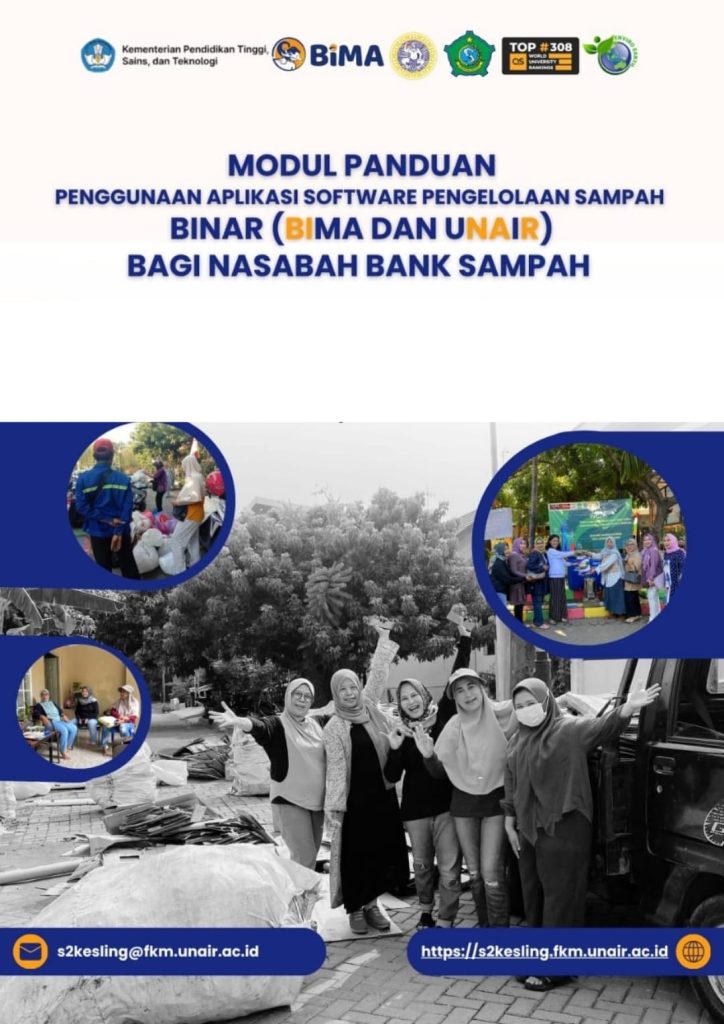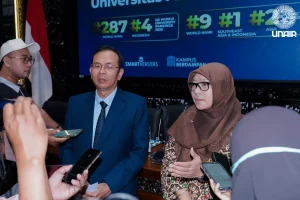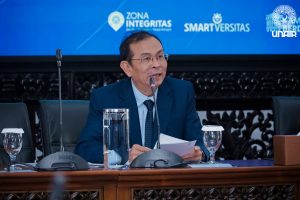UNAIR NEWS – Waste remains a critical and persistent issue in many regions, including Surabaya and Sidoarjo. If unmanaged, accumulating waste not only diminishes environmental aesthetics but also poses serious public health risks. To address this, innovative tools are needed to empower communities in maintaining cleaner surroundings.
During a recent discussion with the Sidoarjo Regency Government, Regency Secretary Dr. Fenny Apridawati, SKM, MKes, emphasized that waste remains an ongoing problem in the area, largely due to low public awareness. She hoped that collaboration with academic institutions, especially UNAIR, could help tackle the issue more effectively.
“We hope that UNAIR students can be mobilized through community outreach or awareness programs to help shift public perceptions about waste,” she said.
BINAR App
To assist communities in managing inorganic waste more efficiently, Universitas Airlangga—led by researcher Dr. R. Azizah—developed a web-based application called BINAR. The project involved collaboration with two UNAIR faculties: the Faculty of Public Health (Environmental Health Department) and the Faculty of Science and Technology, represented by Rimuljo Hendradi (Information Systems) and Edi Winarko (Mathematics).
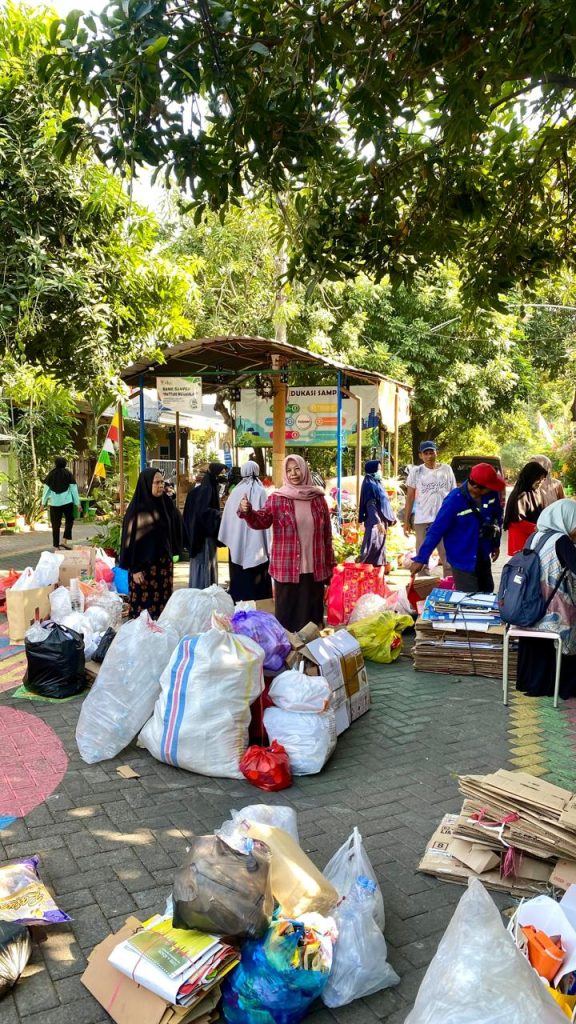
Through the UNAIR SDGs Center, Dr. Azizah has introduced BINAR as a practical digital solution to waste management challenges.
“This application is the result of nearly four years of research. Since last year, we’ve been mentoring a waste bank using the app. We aim to continuously enhance and develop the system annually by incorporating carbon reduction calculations,” she explained.
BINAR provides detailed information about waste bank customers, including their savings in Indonesian Rupiah based on the types of waste they deposit. This enables customers to earn income from sorted waste and supports the circular economy. The app also calculates reductions in CO₂ emissions, offering a systematic platform that integrates apps for customers, waste bank administrators, and waste collectors.
“One waste bank has already successfully implemented the app and converted waste into financial value. If there’s serious interest, we can replicate this across other waste banks in Sidoarjo,” she added.
Circular economy and deep decarbonization
Source-based waste management presents an effective way to reduce waste volume. When households independently manage their waste through a zero-warehouse model and integrated systems, only non-recyclable residuals end up at landfills.
Household-level waste sorting is especially crucial. Inorganic waste holds economic value, while organic waste can support small-scale urban farming. The Pattuh Muamalat Waste Bank has successfully categorized around 65 types of valuable inorganic materials such as plastics, cardboard, cans, bottles, iron, and aluminium, ensuring smooth operation of a circular economy.
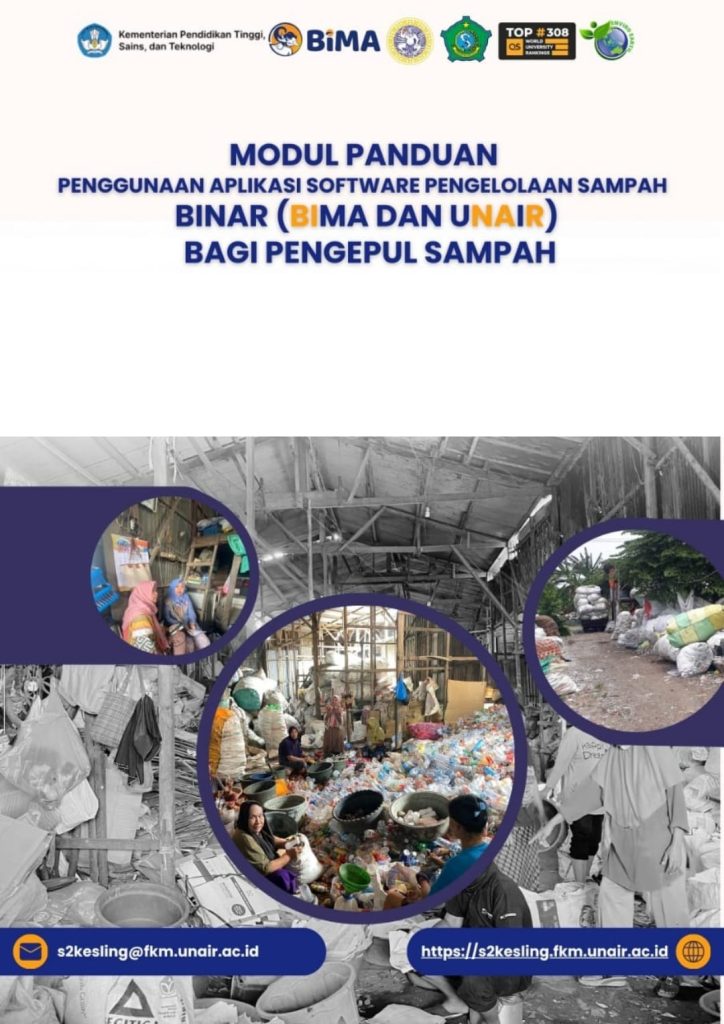
Each month, customers at Pattuh Muamalat Waste Bank are required to submit their sorted waste by 9:00 a.m. sharp. Those who miss the deadline must wait until the next month. Once collected, waste is transported by collectors to central warehouses before being delivered to industries based on material type.
“The waste bank’s efforts are praiseworthy. Their operations help mitigate one of the major sources of greenhouse gas emissions. Based on our research, processing 1 kg of inorganic household waste can reduce emissions by approximately 11.04 kg of CO₂e. This is a significant contribution to improving air quality,” Azizah noted.
Behavioral change patterns
In addition to managing inorganic waste, some residents also process organic waste. Some produce liquid fertilizer from fruit scraps, while others compost kitchen waste and leaves for gardening. “If households actively manage their waste, only truly unusable residues will reach the landfill. This significantly reduces landfill burden and helps control environment-related diseases,” she added.
Environmental illnesses can be mitigated through behavioral change. Unmanaged inorganic waste—like plastic cups, cans, and tires—can collect rainwater and become mosquito breeding grounds. Organic waste such as leftover food or vegetable peels can attract rodents and flies. Proper waste processing—such as making compost or liquid fertilizer—can reduce the spread of diseases like dengue, diarrhea, and typhoid.
Commitment to SDGs
The BINAR initiative aligns with UNAIR’s commitment to the Sustainable Development Goals (SDGs), especially SDG 11 (Sustainable Cities and Communities), SDG 12 (Responsible Consumption and Production), and SDG 13 (Climate Action). Through technology-driven research, UNAIR is playing a vital role in solving environmental challenges—particularly in waste management—while promoting sustainable lifestyle education.
The UNAIR SDGs Center continues to champion the integration of technology, community empowerment, and education as part of a long-term strategy for inclusive, impactful, and participatory waste management.
Open for collaborations
Dr. Azizah also stressed UNAIR’s openness to collaborative partnerships with various stakeholders, including the Sidoarjo Regency Government, Environmental and Health Agencies, and private industry.
“We’re open for collaborations—for example, providing community education and app training to waste banks across Sidoarjo,” said the Head of UNAIR’s Environmental Health and Climate Research Center. The BINAR app also comes with comprehensive modules for customers, administrators, and waste collectors.
Author: Yulia Rohmawati, Dr Azizah


